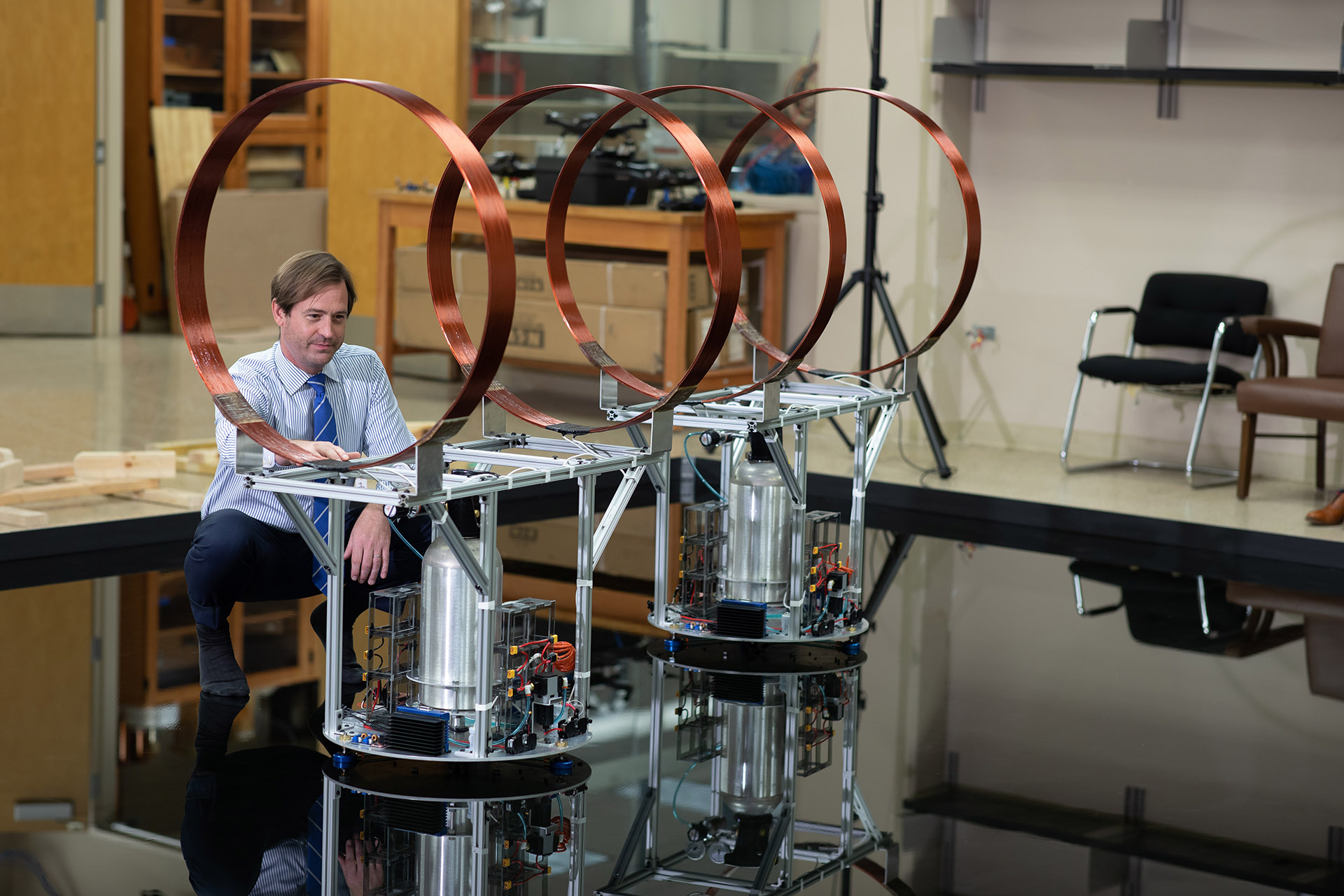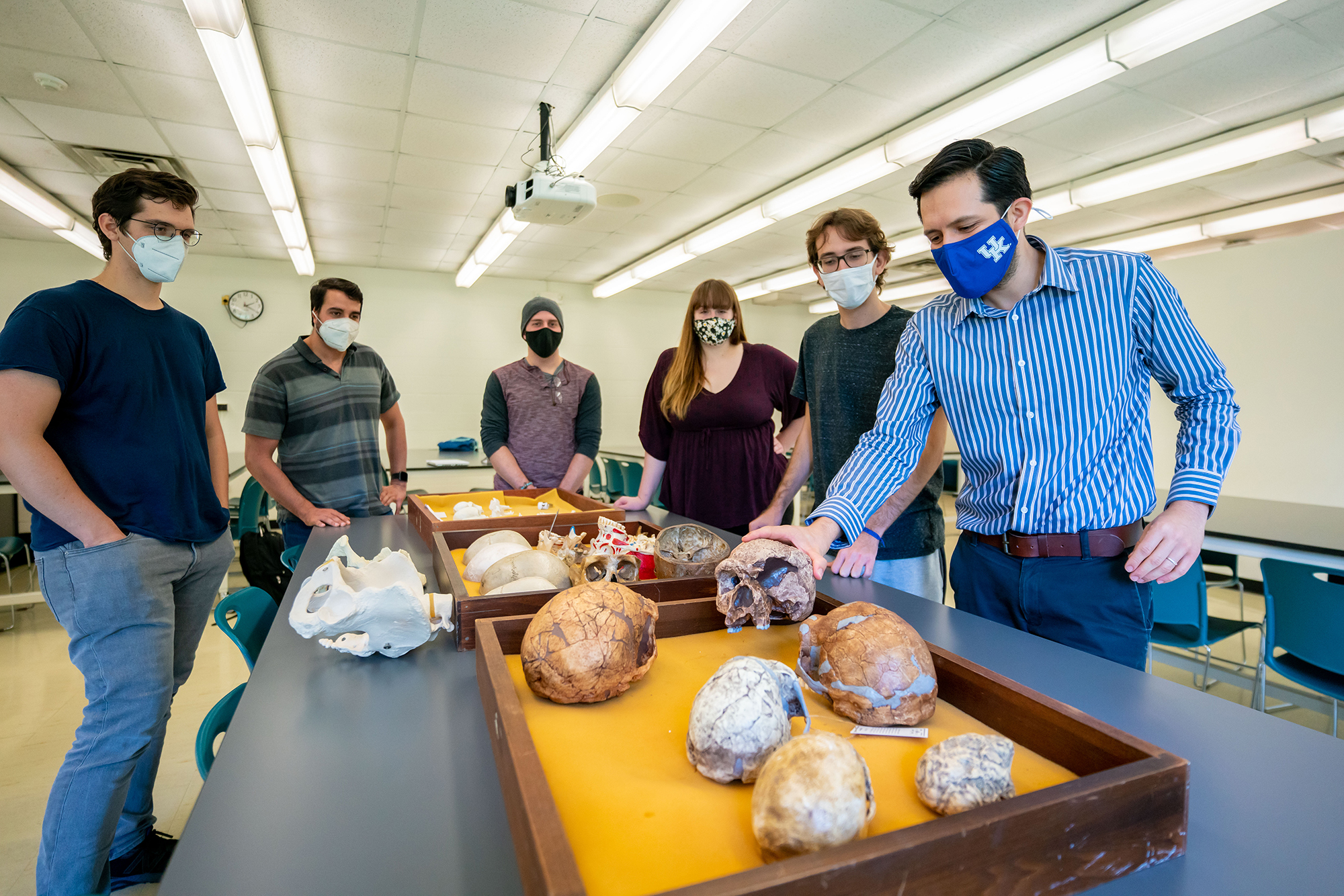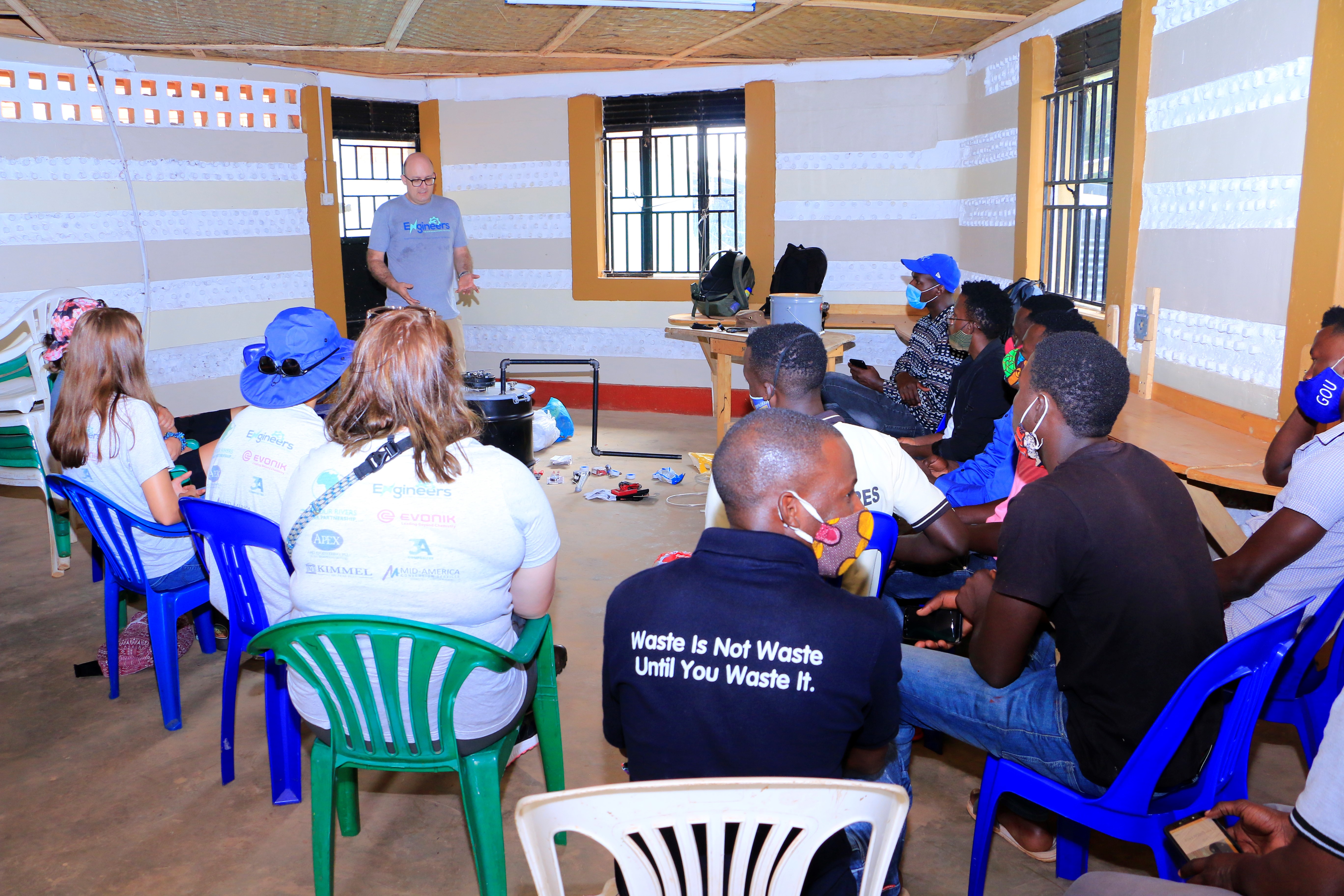Jeffrey Seay, PJC Board of Trustees Engineering Professor of Chemical Engineering at the University of Kentucky College of Engineering Extended Campus at Paducah (UK Paducah), has collaborated with partners in numerous countries, including Ethiopia, Senegal, Uganda and India, for the purpose of finding new ways to convert harmful waste into fuel for everyday use.
When his research resulted in a device capable of converting waste plastic into clean fuel oil, he worked with the Office of Technology Commercialization to ensure the university would handle the intellectual property in such a way that the invention would be available to anyone interested.
As a result, the Trash-to-Tank (3T) Processor is an open-source creation produced by Seay’s nonprofit organization, Engineers for Sustainable Energy Solutions (ESES). The mission of ESES is to provide an innovative sustainable and community-based solution for addressing the issue of mismanaged plastic waste around the world through its “trash-to-tank” technology.
“Plastic to fuel is, so far, the only technology that removes plastic from the ecosystem, and can lead to a net reduction in greenhouse gas emissions, on a life-cycle basis,” says Seay. “A problem faced by most ocean cleanup efforts is that once the plastic is brought ashore, it must still be dealt with.”
Because waste plastic is plentiful and easy to find, 3T Processor operators in developing countries can purchase plastic from members of the community for a small price that, even after electricity expenses, results in a profit comparable to or above the standard wage for an unskilled laborer. The cooking oil produced contains no sulfur — unlike the commonly used kerosene — nor any cyclic aromatic pollutants.
“In many countries, the cooking is done over an open fire by women whose children are with them,” explains Seay. “The smoke that rises out of the fire can lead to asthma and other harmful conditions. It can be like smoking multiple packs of cigarettes per day. To make sure our processor doesn’t put anything harmful into the air, we’re working with an independent lab to test for possible air pollutants.”
While ESES is an independent nonprofit organization, numerous past and present UK students are involved in its mission. Chandni Joshi, who recently defended her Ph.D. dissertation at UK Paducah, is ESES’ vice president. Alumnae Sarah Cranor and Shelby Browning serve as secretary/treasurer and project coordinator/webmaster, respectively. Additionally, professor emeritus William Murphy and Director of UK’s Environmental and Sustainability Studies Program, Betsy Beymer-Farris participate on ESES’ board of directors, as does longtime UK Paducah supporter Kenneth Wheeler. UK Paducah undergraduate researchers play a big role in enhancing the processor’s performance.
“This is an excellent example of one of our new UK Innovate areas, Social Innovation, which focuses on societal benefit and social enterprise,” said Taunya Phillips, director, Office of Technology Commercialization. “This technology, developed at our UK Paducah campus, will impact people around the world. It is exciting to see UK students playing an integral part in creating this sustainable solution to an intractable problem in developing countries.”
The plastic-derived fuel oil (PDFO) yielded by the 3T Processor is clean, safe and easy to transport. ESES is working with Upcycle Africa Limited in Mpigi, Uganda, to train residents how to assemble and use the 3T Processor. Such in-country partners are essential to ESES’ vision of sending devices internationally. They are small enough to check as baggage on an airline, without requiring Seay or anyone else from ESES to construct them on-site.
“There are challenges,” says Seay. “Not all plastics can be converted by our processor. We specifically use plastic types 2, 4 and 5. That means we need to train individuals how to sort accumulated plastics, so we get the right kind.”
In addition to being used as a cooking fuel, the 3T Processor can also produce diesel fuel for household or farm equipment. ESES is also piloting a program within UK Recycling. A 3T Processor is converting waste plastic from the site into diesel fuel which is then being used in certain UK vehicles.
Challenges notwithstanding, ESES is moving forward with its vision for empowering communities and improving the environment.
“Our hope is that we can assist people in developing communities with becoming entrepreneurs,” says Seay. “We’ve proven that this is an economically profitable model and it gets plastic out of the environment.”



